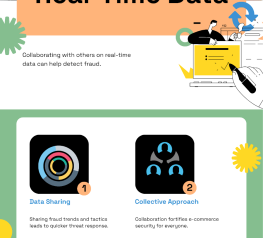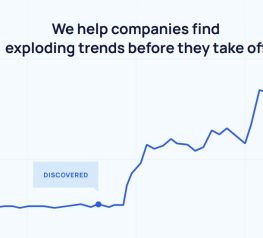How to Use Rank SEO Tracking Tools to Improve Your eCommerce Strategy
SEO rank tracking tools are specialized software solutions designed to monitor the position of specific keywords in search engine results pages (SERPs). These tools provide insights into how well a website ranks for targeted keywords over time.

Photo by Christin Hume on Unsplash
For eCommerce websites, maintaining high visibility in search engine results is crucial. Most online shoppers begin their purchasing journey with a search engine query. Therefore, tracking keyword rankings is essential for understanding how well your website performs in organic search results.
Importance of Monitoring Keyword Rankings
Monitoring keyword rankings is critical for eCommerce businesses for several reasons.
Firstly, it helps in assessing the effectiveness of SEO campaigns. If a new SEO strategy leads to an improvement in keyword rankings, it’s a sign that the strategy is working. Conversely, a drop in rankings may indicate that adjustments are needed.
Secondly, keyword ranking data can reveal trends and seasonal variations in search behavior, enabling businesses to plan and optimize their marketing efforts accordingly.
Lastly, understanding keyword performance helps in identifying which terms drive the most traffic and conversions, allowing businesses to focus their efforts on high-impact areas.
Key Metrics and Insights Provided by SEO Rank Tracking Tools
Rank tracking tools provide a wealth of metrics and insights, including:
- Keyword Rankings: The primary metric showing where your website ranks for specific keywords over time.
- Search Volume: The number of searches a keyword receives, helping prioritize high-traffic keywords.
- Competition Analysis: Insights into how competitors rank for the same keywords, identifying potential areas for improvement.
- SERP Features: Information on whether your keywords trigger special search results features (e.g., featured snippets, local packs).
- Rank Change Alerts: Notifications about significant changes in keyword rankings, allowing prompt action.
- Traffic Estimates: Estimates of organic traffic generated by ranking keywords, helping measure SEO performance.
- Historical Data: Trends and patterns over time, offering a long-term view of SEO effectiveness.
Analyzing Rank Tracking Data
Interpreting rank tracking data involves understanding the nuances behind keyword positions and their fluctuations. The primary goal is to determine whether your SEO efforts are yielding positive results.
- Consistency Over Time: Look for consistent improvements or declines in keyword rankings over a period, rather than focusing on daily changes, which can be volatile.
- Contextual Analysis: Evaluate ranking data in the context of recent SEO activities. For example, a rise in rankings might follow a successful backlink campaign or content update.
- Correlation with Traffic and Conversions: Assess how changes in keyword rankings correlate with organic traffic and conversion rates. Keywords that improve in ranking should ideally lead to more traffic and higher sales.
Identifying Trends and Patterns
This helps in forecasting future performance and planning SEO strategies. Spot these trends:
- Seasonal Trends: Recognize keywords that fluctuate seasonally and plan your content and promotions around these peaks.
- Keyword Performance: Identify which keywords consistently perform well and which ones need more attention.
- Emerging Opportunities: Spot new keywords or search terms gaining popularity and incorporate them into your content strategy.
Understanding Competitive Landscape
Rank tracking tools often provide insights into how your competitors rank for shared keywords. This information can help you:
- Benchmark Performance: Compare your keyword rankings with competitors to gauge your relative position.
- Identify Strengths and Weaknesses: Determine where competitors are outperforming you and identify opportunities where you can gain an edge.
- Strategize Accordingly: Use this data to refine your SEO strategy, focusing on keywords where you have a competitive advantage or need improvement.
Using Rank Tracking Data to Inform Content Strategy
Content is a cornerstone of eCommerce SEO. High-quality, relevant content not only attracts visitors but also engages and converts them into customers. Rank tracking data provides insights that are instrumental in shaping your content strategy. To leverage this data:
- Content Gaps: Identify keywords that are important but lack dedicated content on your site.
- Content Performance: Evaluate how existing content is performing in search results and make necessary adjustments.
- User Intent: Understand the intent behind high-ranking keywords and create content that addresses these needs comprehensively.
Identifying High-Potential Keywords and Topics
High-potential keywords are those that have high search volume but relatively lower competition. Rank tracking tools can help identify these keywords, enabling you to:
- Target Strategic Keywords: Focus on keywords that offer the best opportunity for ranking improvement and traffic gain.
- Expand Content Topics: Develop content around these high-potential keywords to capture more organic traffic.
Optimizing Product Pages and Metadata
Well-optimized product pages rank higher in search results, attract more traffic, and convert better. Rank tracking data can inform the optimization of product titles, descriptions, and meta tags by showing which keywords perform best. To optimize your content use:
- Title Optimization: Ensure product titles include high-ranking keywords to improve visibility in search results.
- Description Enhancement: Use top-performing keywords in product descriptions to provide relevant information and improve ranking potential.
- Meta Tags: Optimize meta descriptions with strategic keywords to enhance click-through rates (CTR) from search results.
Best Practices for Improving Click-Through Rates and Conversions
To maximize the impact of your SEO efforts, follow these best practices:
- Compelling Titles: Write clear, concise, and keyword-rich titles that attract clicks.
- Engaging Descriptions: Craft informative and persuasive product descriptions that highlight key features and benefits.
- High-Quality Images: Use high-resolution images with descriptive alt text to enhance user experience and SEO.
- User Reviews: Encourage customer reviews and display them prominently to build trust and influence purchasing decisions.
Building High-Quality Backlinks
Role of Backlinks in eCommerce SEO
Backlinks, or inbound links from other websites to your own, are a critical factor in SEO. They serve as endorsements of your site’s content, signaling to search engines that your site is a trustworthy and authoritative source of information.
For eCommerce websites, high-quality backlinks can significantly improve search engine rankings, drive organic traffic, and enhance overall domain authority.
Rank tracking data can reveal opportunities for building high-quality backlinks by identifying which keywords and pages perform well and which need a boost. Use this data effectively:
- Top-Performing Pages: Focus link building efforts on pages that already rank well for target keywords to push them to the top positions.
- Underperforming Keywords: Identify keywords with high search volume but lower rankings and create targeted link-building campaigns to improve their visibility.
- Competitor Insights: Analyze competitors’ backlink profiles to discover potential link sources that could also benefit your site.
Strategies for Acquiring Relevant and Authoritative Backlinks
- Content Marketing: Create high-quality, shareable content that naturally attracts backlinks. This could include blog posts, infographics, or industry reports.
- Guest Blogging: Write articles for authoritative sites in your niche, including a link back to your eCommerce site.
- Outreach: Reach out to industry influencers, bloggers, and journalists to promote your content and secure backlinks.
- Directory Listings: Submit your site to relevant business directories and industry-specific listings to gain authoritative links.
- Broken Link Building: Identify broken links on other websites that are relevant to your content, and offer your site as a replacement.
Monitoring Competitor Performance
Monitoring competitors helps you understand their strengths and weaknesses, uncover new opportunities, and refine your own SEO strategies.
Rank tracking tools provide valuable insights into your competitors’ SEO performance. Leverage this data:
- Keyword Rankings: Compare your keyword rankings with those of your competitors to identify areas where you can improve.
- Traffic Sources: Analyze the keywords driving traffic to your competitors’ sites and consider incorporating them into your SEO strategy.
- Content Gaps: Identify topics or keywords your competitors rank for that you don’t, and create content to fill these gaps.
Strategies for Benchmarking and Gaining a Competitive Edge
- SWOT Analysis: Perform a SWOT analysis (Strengths, Weaknesses, Opportunities, Threats) to understand where your site stands in relation to competitors.
- Continuous Improvement: Regularly update and optimize your content, products, and SEO strategies based on competitive insights.
- Innovative Strategies: Experiment with new SEO tactics and technologies to stay ahead of the curve.
Best SEO Rank Tracking Tools
To effectively track and analyze your keyword rankings, several top-tier SEO rank tracking tools are available:
SEMrush

Features: Comprehensive keyword tracking, competitor analysis, backlink audit, site audit.
Pricing: Starts at $119.95/month.
Benefits: Extensive database, robust analytics, user-friendly interface.
Ahrefs

Features: Keyword ranking tracker, site explorer, content explorer, backlink checker.
Pricing: Starts at $99/month.
Benefits: Deep backlink analysis, excellent for competitive research, large keyword database.
Moz Pro

Features: Keyword tracking, site audits, backlink analysis, on-page optimization.
Pricing: Starts at $99/month.
Benefits: Strong community support, intuitive interface, reliable data.
SERPWatcher by Mangools

https://mangools.com/serpwatcher
Features: Keyword rank tracking, daily updates, keyword finder, SERP analysis.
Pricing: Starts at $29.90/month.
Benefits: Affordable, easy to use, visually appealing reports.
AccuRanker

Features: Real-time keyword rank tracking, competitor analysis, SERP feature tracking.
Pricing: Starts at $109/month.
Benefits: Fast and accurate, highly customizable, in-depth analytics.

Analyzing rank tracking data allows for informed decision-making, optimizing content strategy, identifying high-potential keywords, and fine-tuning product page optimization. The strategic acquisition of backlinks and vigilant monitoring of competitors further solidify a business’s position in search engine results pages. As businesses navigate this digital terrain, selecting the right SEO rank tracking tool becomes pivotal, aligning budget, features, usability, and customer support. Check out our blog for more informative posts.







